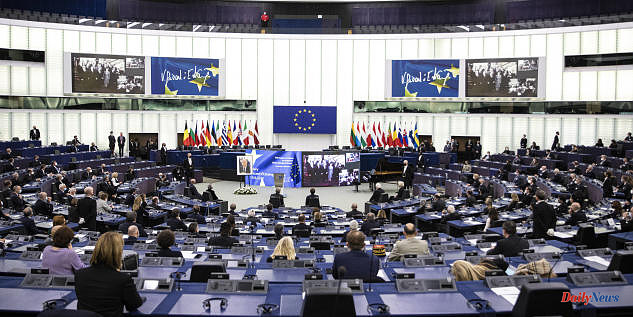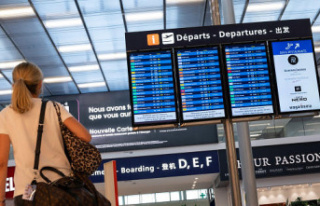The MEPs adopted their position regarding carbon market reform on Wednesday June 22, just two weeks after the surprise rejection of the first version of the key text of the EU’s climate plan. This was before negotiations began with member states. .
At its Brussels meeting, the European Parliament adopted by 439 votes (157 for, 32 abstentions), a compromise that provides for the expansion of the CO2 market, the gradual elimination between 2027-2032 of free emission quotes allocated to companies, and the introduction of a carbon tax on imports of third countries at the EU's borders.
MEPs also confirmed their positions on this unique carbon tax, which will be applied in 2027 and the social fund that is intended to mitigate the effects of the environmental transition. These are the pillars of the European Union's strategy to reduce greenhouse gas emissions by 55% in 2030, compared to 1990.
The European carbon market is currently being traded. Since 2005, "pollution permits", also known as "pollution permits", have been created in limited quantities and must be purchased by electricity producers, and other energy-intensive industries like steel, cement, and so on. Only 40% of the emissions from Twenty Seven are covered by this market. MEPs approved Wednesday the extension of this agreement to the maritime sector as well as aviation and heavy goods vehicles.
However, most industrialists have been able to receive "free quotas" to ensure they are not disadvantaged by imports from third-country countries. Brussels however, provides that free quotas will cease as polluting sector imports (steel and aluminium, cement fertilizers, fertilizers, electricity) will be subject to taxation based on the European CO2 price.
The deadlock ended on June 8. EPP (righteous, first force in Parliament), demanded that the EU's free quotas be kept until 2034. (The Commission proposed 2035). This would allow the EU to continue its free quotas.
This Wednesday's new version was adopted as a result of a compromise between the EPP and S
Other important aspects of the text remain the same: it still aims at reducing emissions from sectors subject the carbon market by 63% in 2030, compared with 2005. This is better than the target set by the Commission (-61%).












